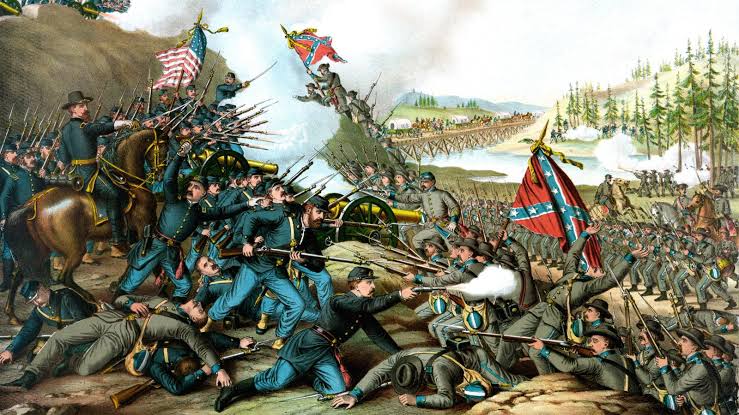
Introduction
The American Civil War, from 1861 to 1865, was more than a battle between the Union and the Confederacy; it was a transformative period that reshaped the United States. This paper explores the profound effects of the Civil War on various societal aspects, with a focus on the distinct impacts on the North and the South, and the long-term consequences that continue to influence modern America.
The Social Fabric: Divergent Paths in the North and South
The social impact of the Civil War varied significantly between the Northern and Southern states. In the North, the war accelerated industrialization and urbanization. Families, although torn by war, largely remained intact. In contrast, the South experienced social upheaval. The abolition of slavery under the Emancipation Proclamation of 1863 (Lincoln, 1863) upended the existing social hierarchy, leading to a struggle for power and identity among freed African Americans and the white population (McPherson, 1988).
Political Repercussions: The Reconstruction Era’s Dual Legacy
The post-war Reconstruction era was marked by attempts to reintegrate Southern states and redefine citizenship, culminating in the 14th and 15th Amendments (Foner, 1988). While these amendments aimed to establish equality, their implementation varied widely. In the South, the end of Reconstruction saw the rise of Jim Crow laws and segregationist policies, creating a legacy of racial inequality that persists to this day.
Economic Transformations: From Agrarian to Industrial Dominance
The Civil War’s economic impact was profound and varied. The Northern victory and subsequent rise in industrial growth contrasted sharply with the devastation of the Southern economy. The South’s dependence on slave labor and plantation agriculture was irreversibly damaged, leading to a challenging economic restructuring (Ransom, 1989). This economic disparity laid the groundwork for the Great Migration, which saw African Americans move from the rural South to the industrial North, seeking better opportunities and marking a significant demographic shift (Tolnay, 2003).
Cultural Changes: Shaping National Consciousness
The war significantly influenced American culture. The anguish and loss experienced during the war were reflected in literature and art, with works such as Walt Whitman’s poetry capturing the national trauma (Samuels, 1996). The cultural shifts during this period were instrumental in shaping a new national identity, moving towards a unified nation despite enduring regional differences (Faust, 1988).
Long-Term Effects: Echoes in Modern America
The long-term effects of the Civil War are still evident in contemporary America. Issues of racial inequality and regional political divisions have their roots in this period. Understanding the Civil War helps contextualize current debates on race relations, social justice, and national identity.
Conclusion
The Civil War was a defining moment in American history, with lasting impacts on social, political, economic, and cultural aspects. The divergent experiences of the North and South during and after the war have shaped the nation’s trajectory. Today, the legacy of the Civil War continues to influence American society, reminding us of the ongoing journey towards a more perfect union.
References
Lincoln, A. (1863). The Emancipation Proclamation.
McPherson, J. M. (1988). Battle Cry of Freedom: The Civil War Era. Oxford University Press.
Foner, E. (1988). Reconstruction: America’s Unfinished Revolution, 1863-1877. Harper & Row.
Ransom, R. L. (1989). Conflict and Compromise: The Political Economy of Slavery, Emancipation and the American Civil War. Cambridge University Press.
Tolnay, S. E. (2003). The Bottom Rung: African American Family Life on Southern Farms. University of Illinois Press.
Samuels, S. (Ed.). (1996). The Culture of the American Civil War: A Historiographical Review. University Press of Mississippi.
Faust, D. G. (1988). The Creation of Confederate Nationalism: Ideology and Identity in the Civil War South. Louisiana State University Press.